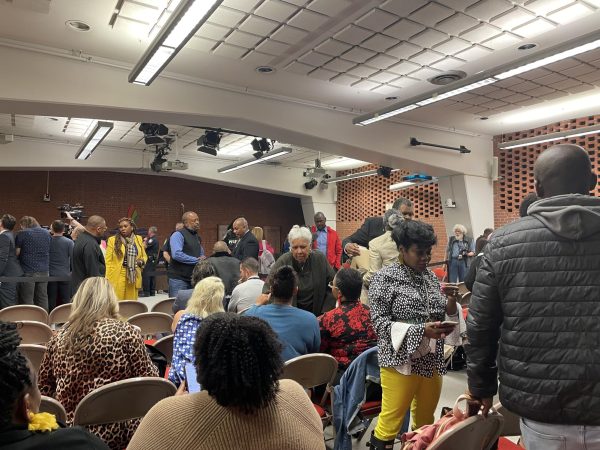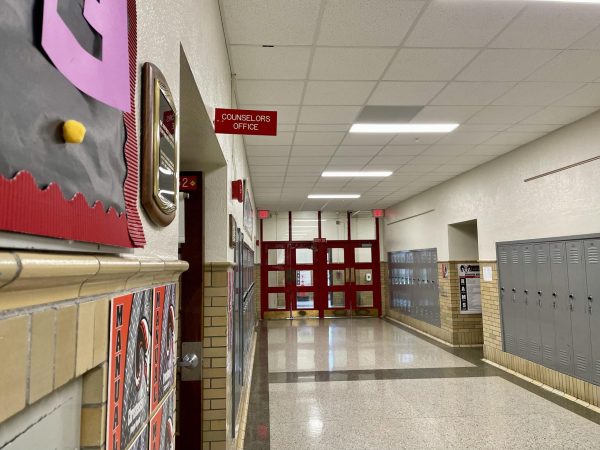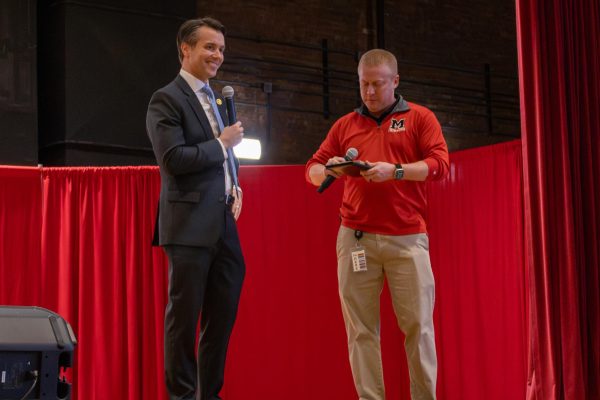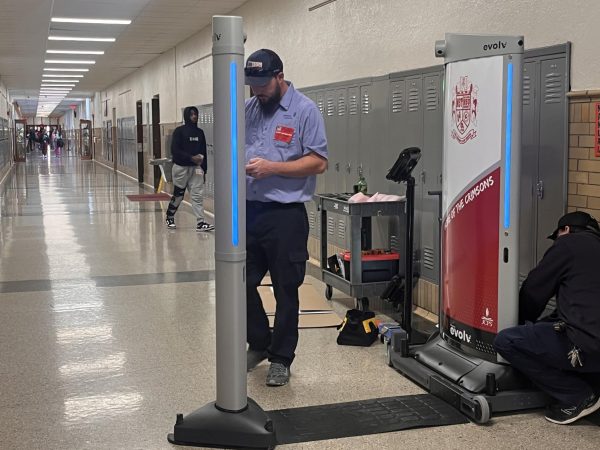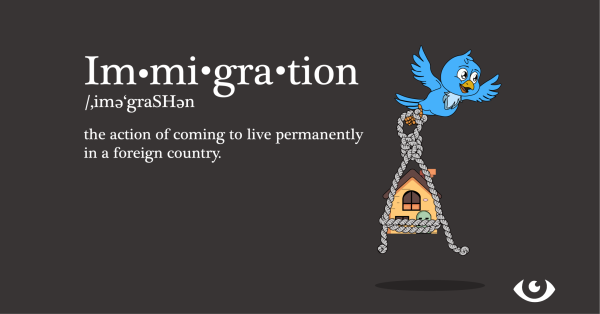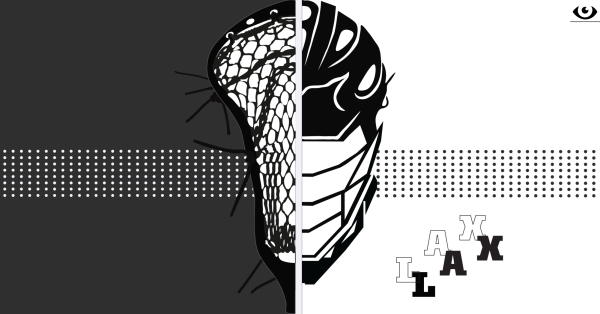OPINION: Kentucky schools should provide menstrual products, period
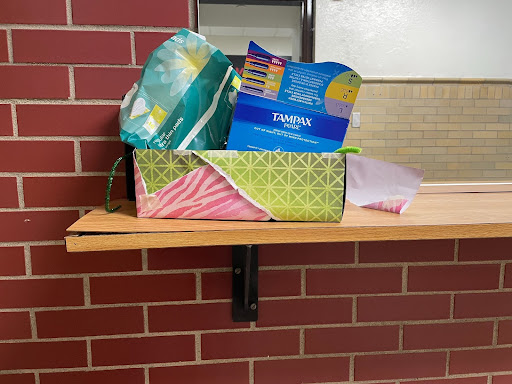
Menstrual products like these are widely available in Manual’s bathrooms. Photo by Isabella Edghill.
February 28, 2023
While many adults may look back on their adolescent years with a sense of nostalgia, the daily grind of high school often chips away at developing teens. Many are navigating friendships, forging through frantic late night study sessions and adjusting to their awkwardly changing bodies and moods. While some awkward moments are bound to occur, others are entirely avoidable. One all too common fear that cycles through the minds of many students who menstruate statewide is: “What if my period comes while I’m at school? What will I do?”
Kentucky Senate Bill 55 aims to relieve this fear, and ease the unneeded stress and shame surrounding the menstrual cycle. If passed, it mandates that all public and charter schools with grades 4-12 provide free feminine hygiene products for students.
Those who use the girls restrooms at Manual know that free supplies can already usually be found in each bathroom. This is thanks in part to ‘The Period Patroness’, Ms. Rich.
“Pre-pandemic, JCPS wasn’t buying these products, and that was something that really made me mad. So I just decided that I was going to be the person who made sure that those who menstruate had what they needed,” Ms. Alexis Rich (Physics) said.
‘The Period Patroness’ is not the only supporter filling this need at Manual. Manual’s Girl Up club did a period supply drive earlier this school year, and uses their stock to help supply girl’s restrooms.
“Period products are first and foremost a necessity for anyone. You can’t go without using a tampon or a pad if you’re on your period,” club member Sarah Kwasny (12, MST) said.
Schools are crucial places to have free period supplies due to the nature of puberty and the menstrual cycle. Most people start their period between the ages of 11-14, and it usually takes one or two years for periods to become regular. This means that periods are often unpredictable and nearly impossible to plan for. This, coupled with a general lack of education around menstruation, often leaves teens unprepared for their periods and frequently in need of supplies.
“It should be provided by the school itself. I think it’s kind of ridiculous that if Girl Up runs out of period products in like Dec., the over 1,000 girls in this school are just screwed,” Kwasny said.
Providing feminine hygiene products in schools also helps to combat period poverty. C. Montgomery is the co-founder of The Ending Period Poverty Project (E.P), which is a non-profit dedicated to ending period poverty in schools.
“We take rolling carts and put in all sizes of products, tampons and pads and keep sanitary wipes there to clean up after. We just want all the students who need those products to have easy access to them,” Montgomery explained.
Period Poverty is the inability to purchase or have access to period supplies. According to the State of the Period Report, 20 percent of teens struggle to afford period supplies.
“We live in a part of Kentucky that is very rural and so many of our students come from low income families. Period poverty extends to all of those students automatically because they may not have the education or the supplies for taking care of periods when they happen,” Montgomery said.
E.P originally started as a service project for Beta Club, but Montgomery and co-founder Lauren Scott quickly realized that their service project could help resolve a larger community-wide problem.
In Kentucky, one in five women and girls live below the federal poverty line, and struggle to meet their basic needs; oftentimes having to sacrifice items such as pads and tampons in order to put food on the table. Additionally, Kentucky is one of the 22 states with a tax on period products. Taxing tampons and pads as luxury goods and not necessities causes these essential supplies to be even more unaffordable. Schools should be a safe place where students have free access to the hygiene supplies they need.
Research shows that keeping feminine hygiene products available for students also improves school attendance. One in four teens in the U.S say they have missed class due to a lack of access to period supplies, and four in five know someone who has missed school because they were on their period.
Kwasny almost found herself in this exact situation, as she recounted an experience she had while on her period at school.
“I was thinking if I can’t find something to use, I’m going to have to go home or call my parents and miss the last two blocks. That’s just not a position that any girl should be put in,” Kwasny said.
The State of the Period report, commissioned by feminine hygiene organizations Thinx and PERIOD, found that 80 percent of girls feel there is a negative association to periods, and 71 percent feel self-conscious while on their periods. This embarrassment and negative stigma around menstruation can deter students from attending school when on their periods.
“We want to not only provide the supplies so that students don’t have to feel embarrassed, but we want to educate them on why this happens and how they can sort of destigmatize the subject,” Montgomery said.
Girl Up has spent one of their meetings decorating period boxes kept in bathrooms. Sparkly fish stickers and humorous puns such as “I be‘leaf’ in you,” can help normalize periods and make the process less daunting.
“I think destigmatizing it is super important. That meeting was really cool, bringing 30 girls together to bond over decorating period boxes. Periods really shouldn’t be like this really big embarrassment for girls,” Kwasny said.
When schools provide free feminine hygiene supplies, they normalize menstruation and send a positive message to their students with periods. This tells them they are valued and supported, and that their period shouldn’t be a source of shame. They are prioritizing their education by encouraging them to come to school without fear and embarrassment, whether they are on their periods or not.
The passing of Kentucky SB 55 would be a great first step in addressing menstruation inequity in Kentucky. However, more can always be accomplished, such as the removal of the “Tampon Tax” which would help make period products more affordable.
Period poverty and stigma around menstruation exist outside of schools just as much as within them. Currently, E.P has mainly seen its effects in Green County, but Montgomery hopes that one day E.P can extend beyond schools and into other venues where supplies are needed, eradicating period poverty completely.
“We really do want to reach out to as many businesses and towns as possible to put these supplies, not only in their schools but just in every bathroom available. It’s not really fair that everybody has to account for themselves. Periods aren’t chosen, so if you supply toilet paper, it makes sense to supply pads and tampons as well,” Montgomery said.
One downside of Kentucky SB 55 is that it doesn’t require that the period supplies need to be kept in school bathrooms. Many schools, such as Manual, keep feminine hygiene products in the main office and nurses office, but schools should ideally stock every bathroom with hygiene products, like E.P, Ms. Rich and Girl Up do, in order to give students the best accessibility.
“Those products should be accessible in the restrooms where they are used. So currently, if a young woman needs products, she has to go to the office and wait in line and basically ask someone, perhaps in a crowded office, out loud. It seems to me that if this is something that girls need in the restroom, then it should be in the restroom,” Ms. Rich said.
However, given that Kentucky SB 55 doesn’t provide funding for schools to purchase these supplies, making them readily available within the building is a good introductory measure. This legislation is still a crucial step in advancing equity across the state, as providing essential period supplies for students is a small step in reducing the negative connotation towards periods. It would have a great effect for individual students and school climate as a whole. Never having to fear “What if my period comes while I’m at school? What will I do?” would lift a burden for many students statewide.
“School bathrooms are not very awesome places and if there is a way to spend a very little bit of money and brighten people’s worlds and days and to let folks who use that restroom know that someone thinks about them, someone cares, it just seems like the right thing to do,” Ms. Rich said.









